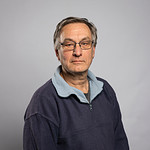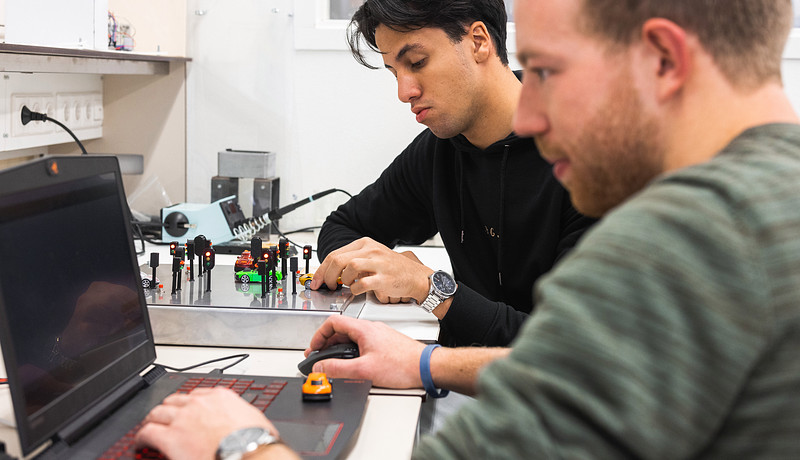Discover the electrical networks and power electronics that power the energy transition
Information on exchange
Energy & Power Electronics
- Level
- Language
- English
- Credits
- 30 ECTS
- Startmonths
- Start: September
- Locations
- Groningen
The energy grid of the future requires engineers who devise new concepts for transporting, converting and storing energy and regulating supply and demand more intelligently. Will you come up with the crucial solution for the flexible application of (sustainable) energy? Will you design the drive system and electric motor for a solar car? With the minor Energy & Power Electronics, you focus on the technology that makes the energy of the future more sustainable, better and smarter.
This programme focuses on generation, transport, distribution and the control of electrical networks for modern grids and on the electronics needed in high power systems. Things like low voltage grids, high voltage grids, power electronics and EMC are studied. Everything is approached from the perspective of an electrical engineer.
The programme consists of five courses and a project:
| Fundamentals of Energy & Power Electronics | 5 ECTS | |
| Elements of Energy Infrastructure | 5 ECTS | |
| Power System Design | 5 ECTS | |
| Power Electronics | 5 ECTS | |
| Power Quality & EMC | 5 ECTS | |
| Project Energy & Power Electronics | 5 ECTS | |
In Fundamentals of Energy & Power Electronics, the fundamental electronics needed in the energy grid and power electronics are treated. Elements of Energy Infrastructure and Power systems design have an emphasis on electrical grids, power generation and the calculation methods needed to analyse and design them. In Power Electronics and Power Quality and EMC we look into the electronic circuits needed for high powered applications and the quality of those high powers. Especially with modern grids with solar, wind, batteries and other renewable energy resources specific challenges arise, which we will go into.
With guest lectures, excursions, theoretical and practical assignments you will gain in depth knowledge of the electrical part of the energy transition. Throughout the semester the students will work in groups on a project in designing (components of) a modern grid or other power electronics applications, such as high power drive systems.
Take a look at the ECTS course catalogue for more information.
Please note that the schedule for this programme may vary from week to week. The programme is intensive and students who apply for this programme are expected to be available and present for the whole duration of the programme. Students are also expected to do the whole programme of 30 ECTS credits.
Before you can start
This programme is accessible for students with a major in Electrical and Electronic engineering, Mechatronics, Energy & Power Electronics and Sensors and Smart Systems. Students need to have completed 105 ECTS credits (3.5 semesters) at undergraduate level.
The programme is also accessible for students who have a background in other engineering disciplines, but they need to have finished courses in the following topics:
- Theory of electrical networks, AC and DC
- Basic theory of electrical machines and transformers
- Basics of electronics
Admission & application
Please check with your home university whether there is an agreement set up with the Hanze School that is offering the exchange programme of your choice. To apply for and be admitted for our exchange programme you should take the following steps
-
1. Be nominated by your home university
Once you have been nominated, your nomination will be checked by us and confirmed to your home university by email. You will receive your application link during our application period.
-
2. Submit your online application
Once you have been nominated by your home university you will receive a personal application link and the application instructions during our application period. The application is fully digital and documents do not have to be send by email or postal mail. Make sure you do not miss our application deadline!
-
3. Letter of Acceptance
Once you have submitted your application we will check your documents. If you have to re-submit any documents, we will let you know. We will be sending out Acceptance Letters from the beginning of May when you start in September and from the middle of October when you start in February.
Find out more about our application process and practical matters.
Frequently Asked Questions
Contact
-

Aart Hoogerwerf
Onderzoeker
Feedback component
How satisfied are you with the information on this page?






